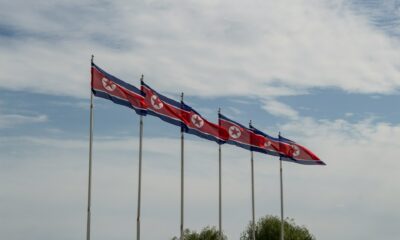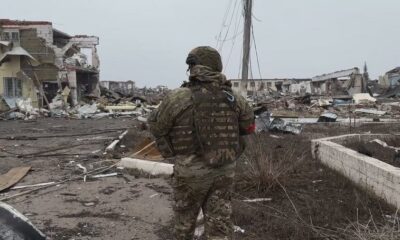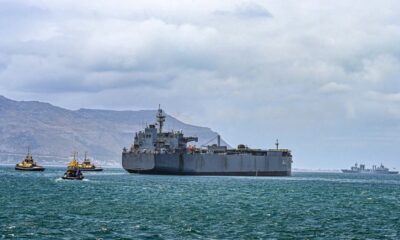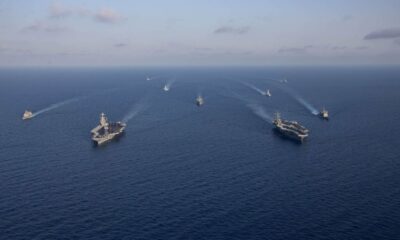News
“High Seas or High Risk? How Israel Violates International Law by Intercepting the Gaza Sumud Flotilla”
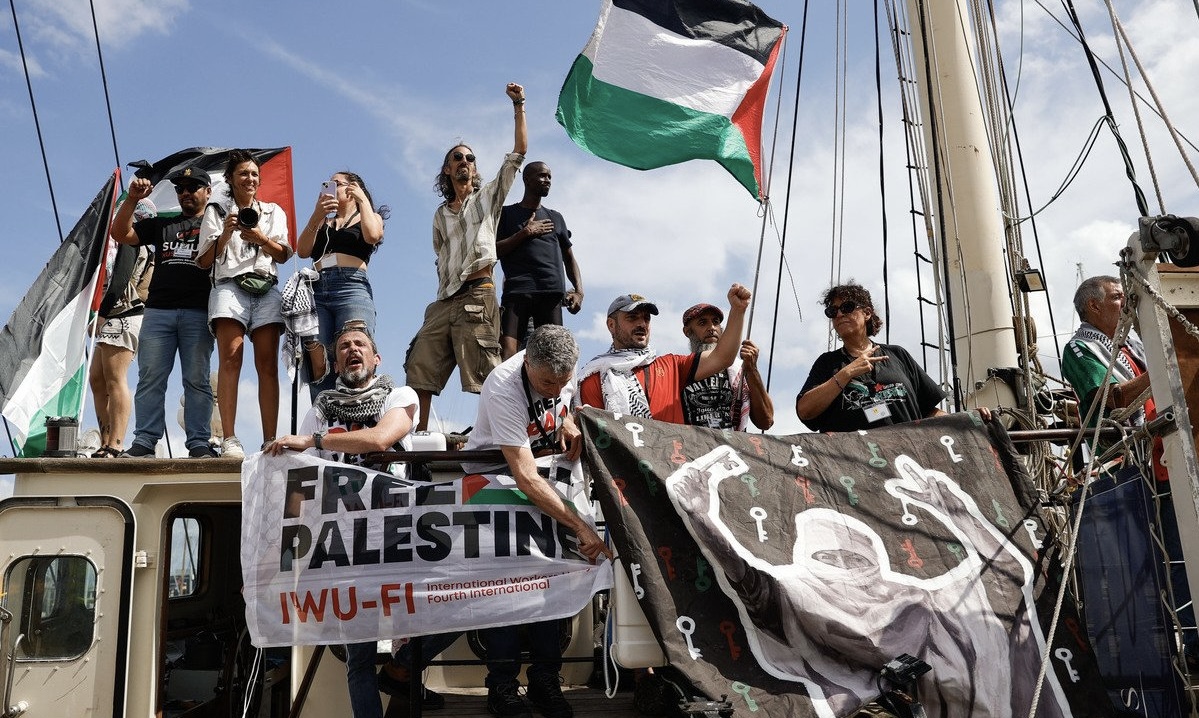
Aid on the Waves: A Flotilla Meets Force
The largest maritime mission to Gaza in years, the Global Sumud Flotilla, faced a dramatic interception by Israeli naval forces on Wednesday night. Over 50 ships carrying humanitarian aid and international activists, including South Africans, were navigating waters Israel calls a “high-risk zone.”
Israel warned it might take control of the flotilla and even sink some vessels. But the legal question looms large: Can a state seize foreign ships in international waters? The short answer, according to international law experts and human rights organisations, is no.
Territorial Waters vs. International Waters: Who Has the Right?
Understanding this conflict starts with geography. Countries control territorial waters extending 12 nautical miles from their coastlines. Beyond that lies the Exclusive Economic Zone (EEZ), stretching up to 200 nautical miles, where nations regulate resource exploitation but cannot stop free navigation.
The high seas, international waters beyond any nation’s EEZ are governed by the 1982 UN Convention on the Law of the Sea (UNCLOS). Ships in these waters are under the jurisdiction of the flag they fly, not the nearest coastal state.
Most of the Sumud Flotilla’s interception occurred in international waters, giving Israel no legal authority to board, seize, or threaten the vessels.
International Laws Israel Is Allegedly Breaching
Legal instruments protecting the flotilla’s mission include:
-
UNCLOS – guarantees freedom of navigation on the high seas.
-
San Remo Manual on Armed Conflicts at Sea – forbids blockades causing starvation or targeting humanitarian missions.
-
UN Security Council Resolutions 2720 and 2728 – demand unimpeded humanitarian access.
-
Fourth Geneva Convention – mandates free passage of humanitarian aid and protection of civilian infrastructure.
-
Rome Statute of the ICC – criminalises starvation as a method of warfare and willful obstruction of aid.
-
Convention on the Prevention and Punishment of the Crime of Genocide – obliges states to prevent acts deliberately endangering civilians.
By intercepting the flotilla, Amnesty International and UN experts argue that Israel violates multiple binding international norms, especially since the ships carried only humanitarian aid.
Amnesty International Speaks Out
Agnès Callamard, Secretary General of Amnesty International, described the interception as:
“A calculated act of intimidation intended to punish and silence critics of Israel’s genocide and its unlawful blockade of Gaza.”
She stressed that the crew’s detention is unlawful, calling for the immediate and unconditional release of all activists.
Amnesty highlighted that Israel’s actions continue a pattern of obstructing aid to Palestinians, potentially inflicting famine and denying life-saving assistance, contrary to both ICJ orders and international humanitarian obligations.
A Historical Pattern
This is not the first flotilla intercepted in international waters. In 2024, UN experts affirmed that the Freedom Flotilla, a similar humanitarian mission, had the right to navigate freely, and Israel had no authority to interfere.
The repeated maritime interceptions underscore the growing tension between Israel’s naval blockade policies and international legal standards protecting humanitarian missions.
The Bigger Picture: Humanitarian vs. Political
Beyond legality, the interception is a symbolic and political act. By targeting vessels carrying aid, Israel risks inflaming global condemnation, especially with high-profile passengers like Mandla Mandela aboard. Social media is already echoing outrage, with activists and citizens demanding accountability and safe passage for aid.
For many, the flotilla represents more than supplies, it is a moral test for the international community on protecting civilians and enforcing international law at sea.
Israel’s maritime actions now face scrutiny not only in diplomatic circles but also through international courts and human rights organisations, making the question clear: How far can a nation go before breaking the law of the sea?
{Source: IOL}
Follow Joburg ETC on Facebook, Twitter , TikTok and Instagram
For more News in Johannesburg, visit joburgetc.com

